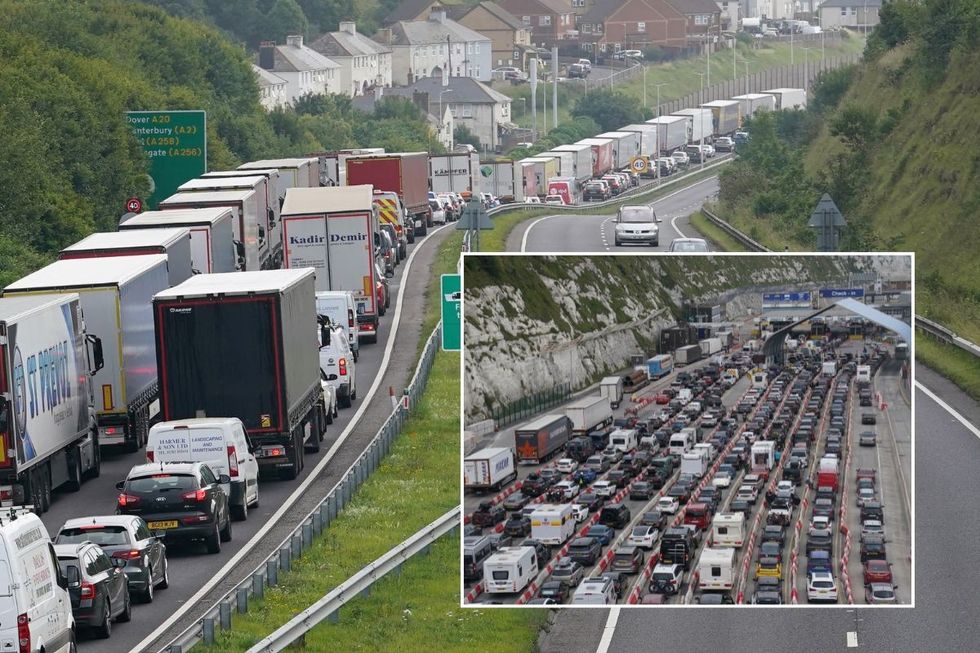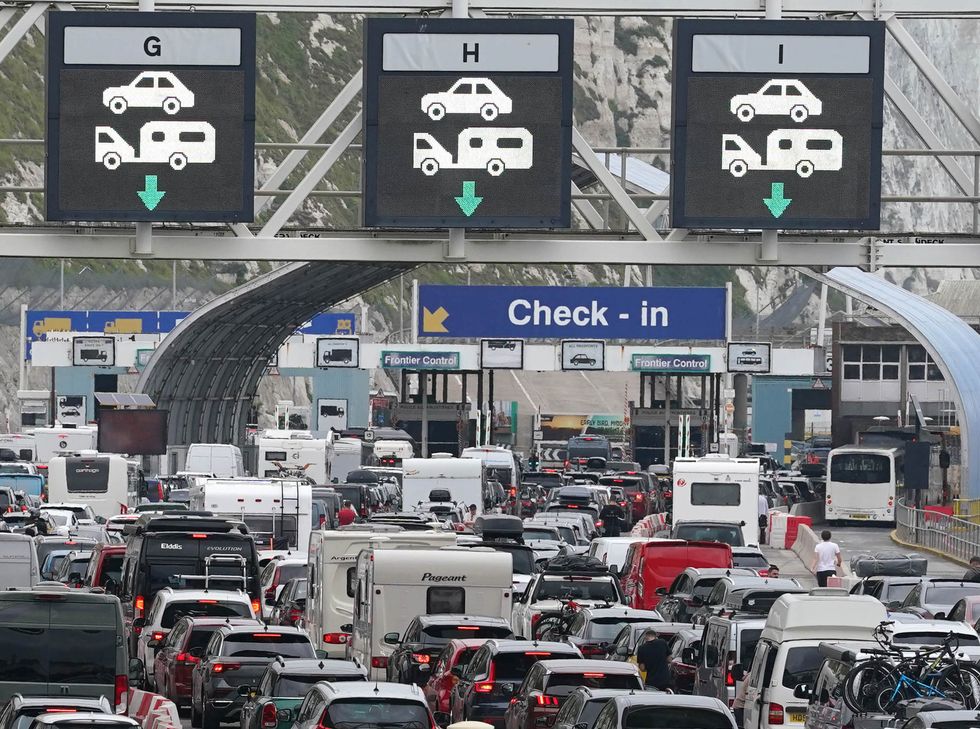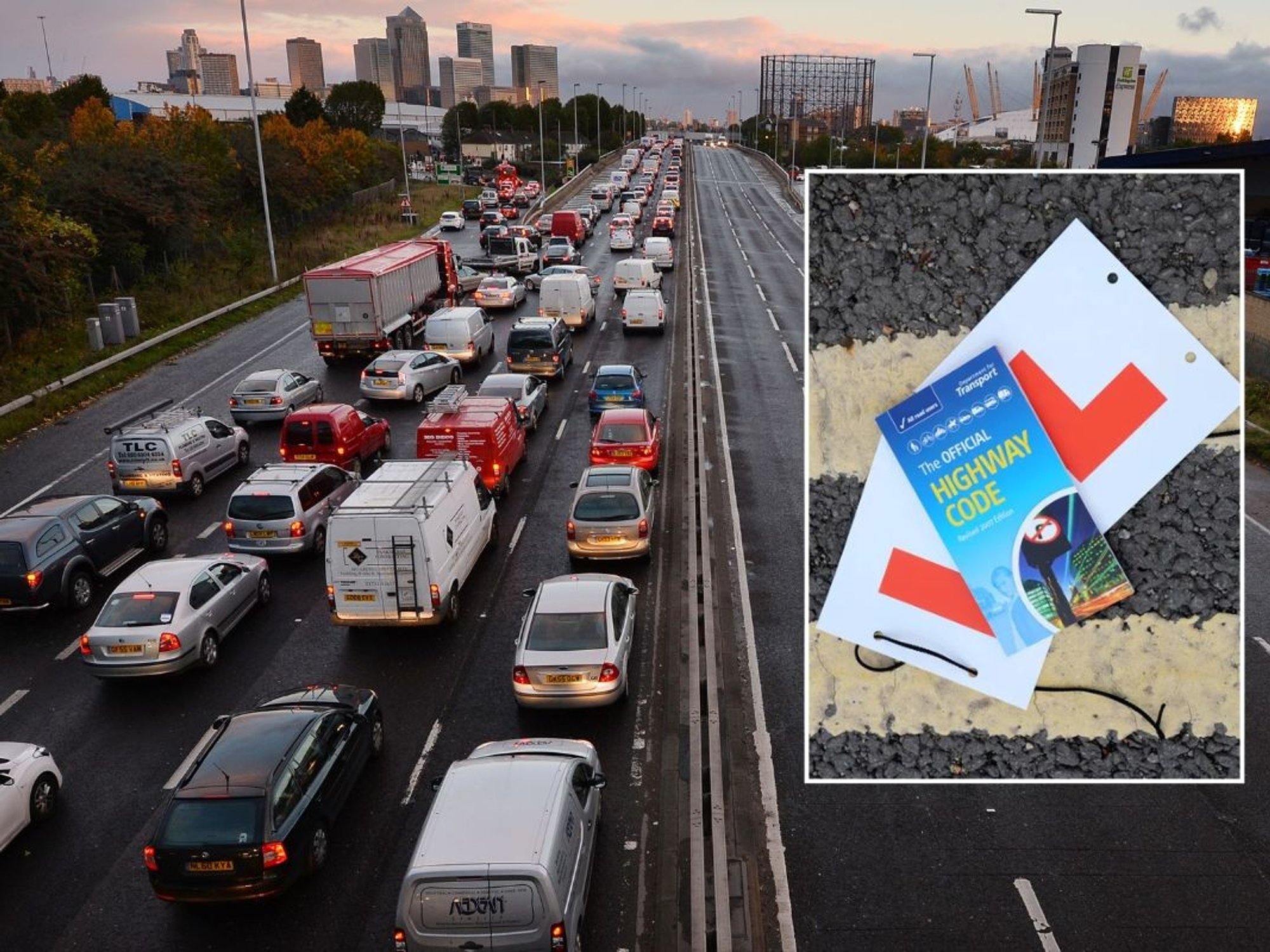Motorists to see major driving system delayed until 2026 as 'gridlock' fears force action

The Entry/Exit System was supposed to be introduced to drivers on November 1
Don't Miss
Most Read
Drivers have been warned of delays to a new international driving system, which was due to come into effect last month.
The Entry/Exit System (EES) at the Port of Dover was supposed to be introduced to car passengers on October 12, but following challenges, the authority has now delayed the rollout until early 2026.
The border checks would require visitors from outside the European Union to register their photos and passport details before entering the designated country.
This system was brought for coach passengers at the Port of Dover in October with the intention to introduce the requirements for car passengers on November 1, but one day before the authority paused the rollout.
TRENDING
Stories
Videos
Your Say
The Port of Dover shared: "The Port of Dover is working closely with our French border agency partners to ensure a smooth introduction of the EU Entry/Exit System for tourist passengers in early 2026.
"We have a shared determination to take advantage of the opportunities offered by the gradual ramp-up period and not to cause any significant changes for passengers just before the busy end-of-year period."
It explained that "significant progress" has been made to minimise disruption for travellers as they get accustomed to the new rules.
While the check for vehicles has stagnated, for coaches, freight and foot passengers, the measures have resulted in nearly 13,000 digital profiles being successfully created.

The ESS has been pushed back to early 2026 for car passengers
| PAThe authority added: "We understand that Dover accounts for more than 30 per cent of all registrations made by French seaports since October 12.
"This also exceeds the intended target for this period of implementation and firmly demonstrates the success of our collective efforts thus far. Together, we are confident this partnership approach will deliver an efficient and positive experience for passengers as the full EES programme comes online."
During the delay, passengers have been advised to stay informed via updates from their ferry operator and to allow extra time for their journey during the transition period.
Before the system came into effect last year, councillors from Dover District Council warned about the impact on traffic throughout the area as a result of the new rules.
LATEST DEVELOPMENTS
- Electric cars mark 'turning point' on UK roads as petrol and diesel sales grind to a halt - 'Crystal clear'
- Rachel Reeves set to hammer millions of drivers with 'double car tax' ahead of pay-per-mile Budget decision
- Thousands of e-bikes seized for blocking pavements as Britons become 'fed up' with nuisance vehicles

Councillors warned that the new system would cause 14-hour delays heading to Dover
| PACouncillor Kevin Mills told the House of Lords Justice and Home Affairs Committee that even without the EES, the town comes to "a gridlock several times a year", potentially causing 14 hours of delays.
He said: "In Dover, it is not just the A20; the whole town stops. Nothing moves. I am not exaggerating. When you walk down the town - you have to walk, because you cannot get a bus or anything else - and see ambulances stuck in queues, you start to worry. The impact on Dover is particularly bad."
Kent and Medway Resilience Forum explained that when checks on car passengers do get underway, travellers arriving at the Port of Dover with a non-EU national in their vehicle will be directed to its new facility in the Western Docks.
Ferry passengers will be asked to follow the instructions from their travel operator and should pay attention to road signs on approach roads into Dover.

The Port of Dover launched a new Entry/Exit System on October 12
| PAThe forum noted that the threat of disruption on the roads to Dover and Folkestone has been reduced.
Kent and Medway Resilience Forum strategic lead for border disruption, Simon Jones, said: "We will do everything in our power to reduce the chance of disruption when the EES checks begin. We have well-tested plans to mitigate any incidents or delays that may take place.
"These plans mean we can prioritise keeping the Roundhill Tunnel open, preventing the build-up of traffic on local roads."
He detailed how the forum would work to prioritise effective traffic flow from Kent to Europe, "ensuring disruption to communities from traffic congestion is minimised as much as possible whilst making sure people can get to where they need to be as quickly and as safely as possible".











